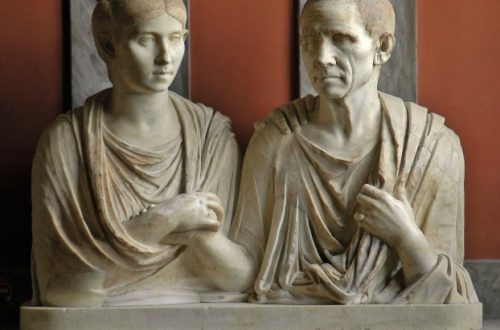Lessons on mentoring (and other rebukes) from “The Voice”
I've never been a fan of reality TV, but after a close friend confided that The Voice was her favorite show, we decided to tune in and give it a one-time try. Shortly we were hooked. And now I'm learning valuable lessons about mentoring from an unexpected source. As a Christian who just co-authored a book on a new model of mentoring, Organic Mentoring, I was shocked that superstars Adam, Pharrell, Christina, and Blake illustrate many of the principles we promote. WOW! My categories are rattled!
First, I love the concept of coaching built into the show. I love watching the way the coaches encourage and exhort the contestants. They seem to really care. I love the way they have created a healthy loving ethos. So many reality shows bring out the worst in people, rewarding people for bizarre behavior. But The Voice seems to center on bringing out the best in people, whether that's the singers or the coaches, the coaches' celebrity advisers, or the families of the dreamers.
And it seems that the vocalist contestants crave mentoring just like our younger generations in the Church. As host Carson Daly interviews these wanna-be superstars, many express their desire to be guided by someone who has walked where they want to walk.
In Organic Mentoring, based on my co-author Barbara's doctoral research, we suggest that for the best matches, mentees need to choose their mentors. The Voice is designed so that mentees have to the opportunity to make their own decisions concerning which coach best fits them. They experience a certain chemistry or click that draws them to one over the other. Because it's their personal choice, they are particularly open to that coaches' instruction.
And, oh, what Christian mentors could learn about mentoring from Adam, Pharrell, Christina, and Blake! Last week we were talking about mentoring in one of my classes and one of my students, on the verge of tears, revealed her heartbreaking experience. Yearning for a mentor to guide her as a Christian leader, she had approached three different women with hopes of learning from them. She did not ask them for a long term commitment–just coffee on an as-needed basis. But all three made it clear that they did not have the time or interest to invest in her life. And by the way, she's a sharp winsome woman.
One of the toughest hindrances we face in mentoring is the mentor's reticence to mentor. Many older women are either too busy or hold onto an outdated model of mentoring that scares them away. They think they'll be locked into a relationship that requires a huge time commitment. They think they need to be the Bible-answer woman as well as the perfect role model. They don't feel up to the assumed challenge, or they are too exhausted to add one more thing to their lives. Or they don't understand or even like much of what they observe in younger generations Thus their heart is cold toward young folk. They don't know that mentees don't want that kind of a time commitment either, nor do they expect a Bible-answer woman. Misunderstandings flood expectations, leaving women like my student to figure out life on her own.
In contrast, what if Christian mentors were as eager as Adam, Pharrell, Christina, and Blake to coach younger woman. What if they showed sincere interest in mentees' gifts and potential. What if they were equally eager, beckoning and wooing mentees with all the reasons why a relationship together would make them a super team. Imagine if older women were equally enthusiastic to know, "see", and encourage younger women. What if mentors made it their practice to point out specific possibilities in younger people, picturing a joyful future loving and serving the Lord with health and strength, according to their unique design. But just like on The Voice, the final decision was left to the mentee. Like my student, after several rejections, we wouldn't see so many mentees discouraged enough to give up the search.
Rejection also occurs on The Voice. Not everyone gets the opportunity to connect with a coach. But I have loved watching the coaches give honest helpful feedback to those vocalists who don't move forward in the process. They point out specific ways that the contestant can improve, what they can work on, and most vocalists leave with an invitation to return. It's a kind let down that seems to have the best interest of each contestant at heart. I wish my student had experienced that kind of a let down. She might still be looking if she had.
What else could Christian mentors learn from these four superstars and their celebrity advisors? Adam, Pharrell, Christina, and Blake are not only stellar musicians; they seem to love people and desire to help them make their dreams come true. They are master encouragers and exhorters. They use specific and meaningful words. Even their correction is accompanied by a hearty "keep at it–don't give up." And they don't aim to pour the apprentice vocalist into their own mold. In Barbara's research, millinnials told her that they thought there were many ways to be a godly Christian woman. They did not want to become a ditto of someone else–but too many mentors pressured them into their molds. The Voice coaches seem to get that. They say things like, "I just want to help you discover your own style and follow the music you love." Watch how often the coach who says that is chosen.
Also, I made a rather unpleasant discovery about myself. I don't think of myself as a particularly judgmental person–one quality people in the secular culture often assume and dislike about Christians. But I discovered while watching The Voice that I'm more judgmental than I thought. I am too quick to put people into neat little categories: entertainers, Hollywood people, Nashville people, tattoo-covered people, crazy-haired people, bald women, and on and on. I'm quick to think they are probably self-absorbed, shallow, and morally loose. But hearing their stories, hearing their heartaches and dreams, and meeting their families made me look beyond the assumptions. I suspect "those people" may be quick to put Christians into neat little categories too: legalistic, unloving, bigoted, narrow-minded, boring, and judgmental. Sadly, too often, older and younger Christians assume untruths about one another and it hampers mentoring connections that could enrich both their lives. I'm asking the Lord to help me love people the way Jesus did. He saw all people made in the image of God. How might our world be different if we all learned to see one another through Jesus eyes?
OK–It's a singing contest and some of it may be orchestrated. It's still a win and lose proposition, with only one final winner. In numerous ways, my comparisons break down. But I still can't watch it without admiring the many facets of mentoring that I'd love to see us, as Christians, emulate more. I still can't watch it without a sense of rebuke in my spirit. That's a good thing. If God wants to use a secular TV show like The Voice to rebuke me, well, I'm willing to learn from unexpected sources too. But then I'm a novice. I've only watched it three times, and its in it's eighth season. Maybe some of you who've followed it longer have some thoughts?




4 Comments
Heather Crook
Agree!
Well said, Mom! I agree completely!! And I've been watching for years!!!
Lael Arrington
Love your teachable spirit, Sue!
You set a great example.
joan Hill
The Voice
I also like that they are judged by their voice and not by their appearance. As a pastors wife I've been told repeatedly by some who may not fit the social norm that they haven't been allowed to minister in the church . My experience is that they are often the most willing and able and with acceptance become loved, and more socially acceptable.
Dr. Sue Edwards
Thanks for your comments Joan. Excellent points!!